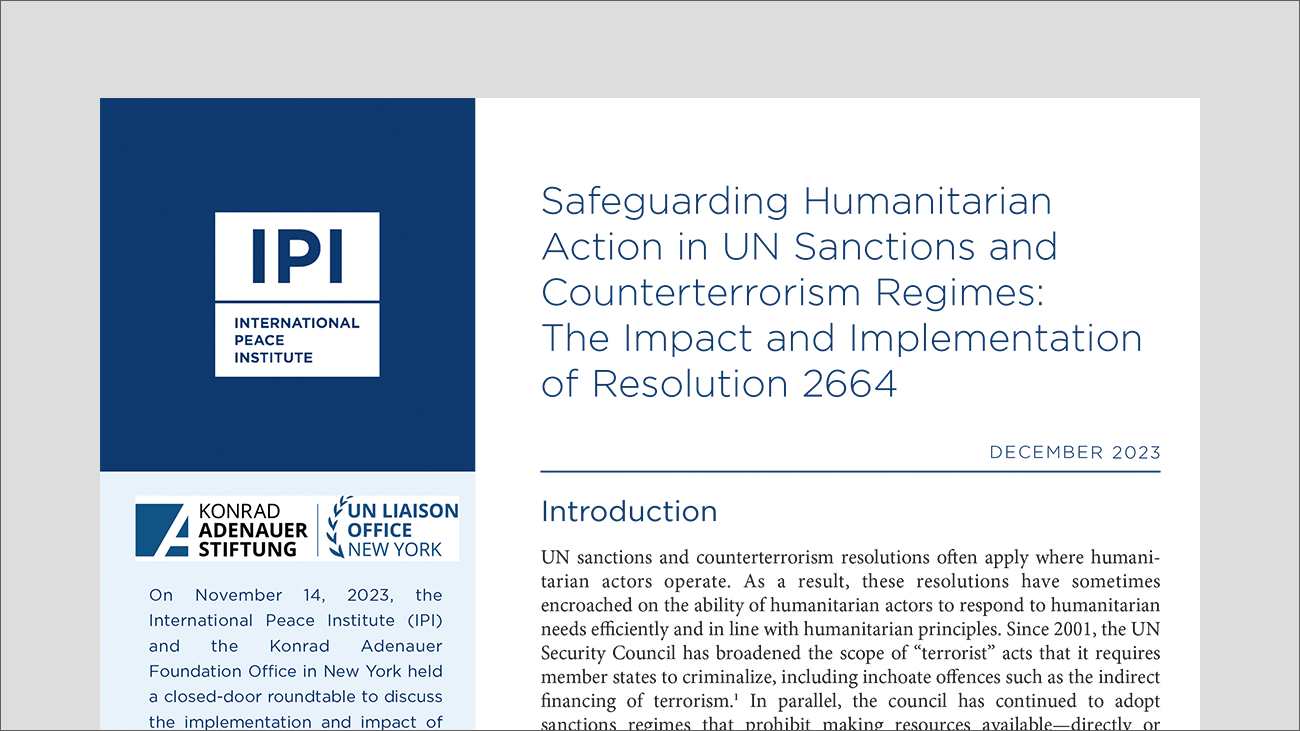
Humanitarian organizations have repeatedly called attention to the challenges that counterterrorism resolutions and UN sanctions regimes can pose to humanitarian action. In response, the council has progressively incorporated language that better takes into consideration international humanitarian law (IHL), international human rights law (IHRL), humanitarian principles, and the need to protect principled humanitarian action from the potential negative consequences of sanctions and counterterrorism measures. Most notably, in December 2022, the UN Security Council adopted Resolution 2664, which provides a cross-cutting humanitarian exemption to asset freezes under all its sanctions regimes, including the 1267 counterterrorism regime against ISIL/al-Qaida, to safeguard the timely and effective conduct of humanitarian activities.
In this context, IPI and the Konrad Adenauer Foundation Office in New York hosted a closed-door, hybrid roundtable on November 14, 2023, to assess the implementation and impact of Resolution 2664, including its potential application to counterterrorism measures. This roundtable provided a platform for exchanges between humanitarian organizations, member states, the UN Secretariat, civil society organizations, and independent experts, including those based in Geneva and New York.
There was broad agreement among participants that Resolution 2664 is a milestone achievement representing a fundamental policy shift within the Security Council. However, the resolution does not resolve all obstacles facing humanitarian actors seeking to provide aid in contexts where sanctions from the UN and autonomous regimes, as well as counterterrorism measures, apply. Participants thus provided the following recommendations on how to continue to safeguard principled humanitarian action:
- Member states should incorporate the obligations of Resolution 2664 into national and regional frameworks;
- Member states should take steps to apply the humanitarian exemption to autonomous sanctions regimes and counterterrorism measures;
- Donors should streamline reporting requirements for humanitarian actors;
- UN entities, humanitarian actors, and member states should invest in greater guidance and capacity building on the implementation of Resolution 2664; and
- UN entities, international and local humanitarian actors, member states, and the private sector should continue to engage in inclusive, multi-stakeholder dialogue at the national and global levels on the implementation of Resolution 2664 and risk-mitigation measures.







